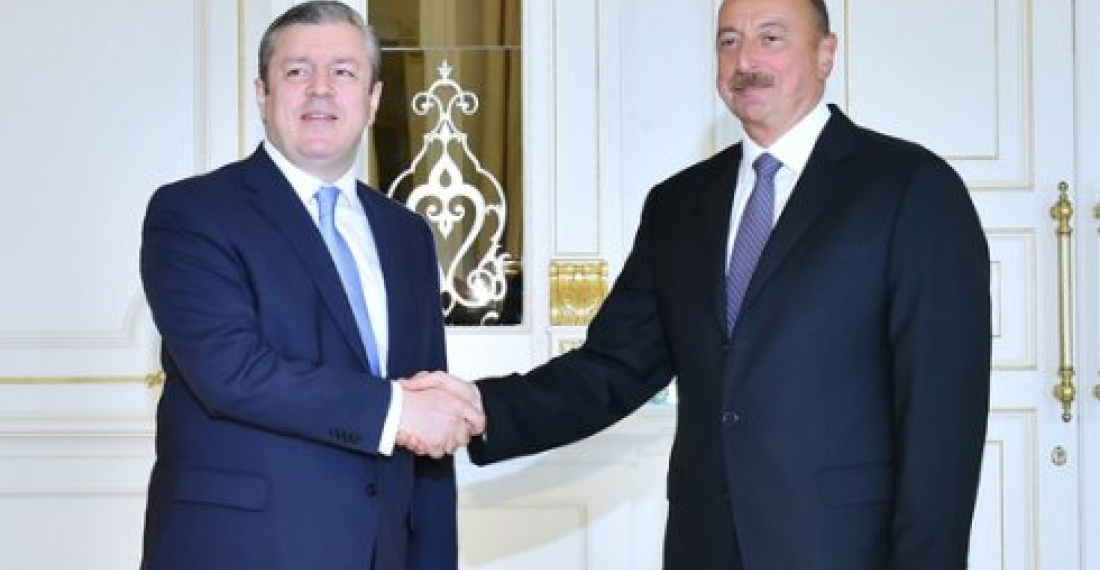В среду, с официальным визитом в Азербайджан прибыл премьер-министр Грузии Георгий Квирикашили, где запланированы его встречи с президентом Ильхамом Алиевым и другими официальными лицами Азербайджана.
Приветствуя премьер-министра Грузии в Баку, президент Алиев сказал, что грузино-азербайджанские отношения "основываются на истории, братстве, близком соседстве наших народов. Сегодня мы проводим активный диалог по всем сферам - политической и экономической. Нас объединяют проекты как в транспортной, так и в энергетической сферах, которые успешно развиваются. Мы удовлетворены развитием двусторонних связей. Уверен, Ваш визит будет способствовать углублению и укреплению этих связей. Нас объединяют исторические, географические интересы, и как я уже отметил, крупные транснациональные энергетические и транспортные проекты. От реализации этих проектов, их успешного претворения в жизнь зависит процветание наших народов, а также стабильность в регионе", сказал президент.
Со своей стороны премьер-министр Грузии заявил: "Мы приложим все усилия, чтобы поддержать укрепление наших добрососедских отношений, которые носят действительно стратегический характер, как вы уже отметили, мы разделяем большую дружбу, а также вместе реализуем региональные и глобальные проекты, которые имеют ключевое значение для благополучия наших стран и дальнейшего укрепления нашей дружбы".
В понедельник, министр иностранных дел Азербайджана Эльмар Мамедъяров побывал в Тбилиси, где встретился с грузинским руководством.
По словам политического редактора Commonspace.eu, "грузино-азербайджанские отношения стремительно развивались и консолидировались последние два десятилетия, и сегодня они составляют основу регионального сотрудничества. Обе страны по-разному нуждаются друг в друге и нашли способ трансформировать это в твердые узы дружбы. Но между ними также есть и вопросы, которые стоит урегулировать и пока их не разрешили, есть риск, что они могут испортить эти отношения, поэтому стороны должны быть осторожны в обращении с ними. Грузия со своей стороны также должна балансировать свои хорошие отношения с Азербайджаном с одинаково хорошими отношениями с Арменией. Как ожидается, премьер-министр Грузии в ближайшее время посетит Ереван. Грузия может помочь в урегулировании отношений между Арменией и Азербайджаном, и ей не стоит стесняться делать этого всякий раз, когда появляется такая возможность."
источник: commonspace.eu по материалам агентств
фото: Президент Азербайджана с премьер-министром Грузии, Георгием Квирикашвили в Баку, в среду, 31 августа 2016 года (фото любезно предоставлено пресс-службой президента Азербайджана).






